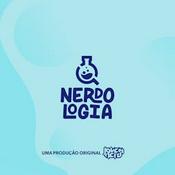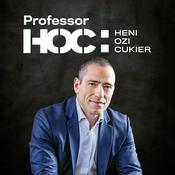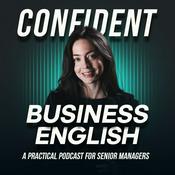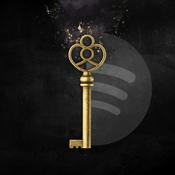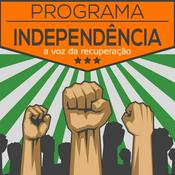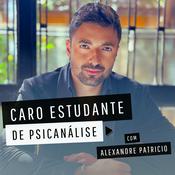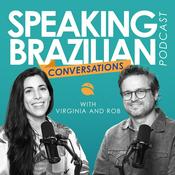982 episódios
- In this episode, Chris Duffy, author of Humor Me: How Laughing More Can Make You Present, Creative, Connected, and Happy, discusses how humor can transform our relationship with life’s challenges, connect with others, and shift our perspective on difficult situations. He shares personal stories and practical tips for cultivating humor, emphasizing laughter’s role in resilience and well-being. The conversation covers the social power of humor, taking risks, and learning to laugh at ourselves.
Take our quick 2-minute survey and help us improve your listening experience: oneyoufeed.net/survey
Exciting News!!! Coming in March, 2026, my new book, How a Little Becomes a Lot: The Art of Small Changes for a More Meaningful Life is now available for pre-orders!
Key Takeaways:
The role of humor in coping with life's challenges.
The concept of shifting perspectives through laughter.
The parable of the two wolves and its implications for personal growth.
Distinctions between comedy, humor, and levity.
Humor as a spiritual virtue and its importance in connecting with others.
The social function of laughter and its role in building relationships.
Practical strategies for cultivating humor in daily life.
The therapeutic benefits of humor during difficult times.
The idea of taking social risks to foster genuine connections.
The transformative power of humor in reframing experiences and enhancing well-being.
For full show notes: click here!
If you enjoyed this conversation with Chris Duffy, check out these other episodes:
Humor and Healing with Josh Johnson
Pete Holmes
Paul Gilmartin
By purchasing products and/or services from our sponsors, you are helping to support The One You Feed and we greatly appreciate it. Thank you!
This episode is sponsored by:
David Protein Try David is offering our listeners a special deal: buy 4 cartons and get the 5th free when you go to davidprotein.com/FEED.
Hungry Root: For a limited time get 40% off your first box PLUS get a free item in every box for life. Go to www.hungryroot.com/feed and use promo code: FEED.
IQ Bar: Text FEED to 64000 to get 20% off all IQBAR products, including the ultimate sampler pack, plus FREE shipping. (Message and data rates may apply).
Learn more about your ad choices. Visit megaphone.fm/adchoices Exploring the Complex Nature of Envy: How to Harness It for Personal Growth with Faith Salie
17/2/2026 | 59minIn this episode, Faith Salie, CBS Sunday Morning correspondent and comedian, explores the complex nature of envy and how to harness it for personal growth. Drawing from Faith’s Audible series “Envy Enlightened,” they discuss the different types of envy, how it can be both destructive and motivating, and the importance of acknowledging and transforming it. Through personal stories and expert insights, they emphasize gratitude, self-awareness, and compassion, encouraging listeners to view envy as a natural feeling that, when understood, can guide personal growth and deepen appreciation for one’s own life.
Take our quick 2-minute survey and help us improve your listening experience: oneyoufeed.net/survey
Exciting News!!! Coming in March, 2026, my new book, How a Little Becomes a Lot: The Art of Small Changes for a More Meaningful Life is now available for pre-orders!
Key Takeaways:
Exploration of the nature and complexities of envy as an emotion.
Discussion of the parable of the two wolves and its relation to emotions like envy.
Differentiation between benign (positive) and malicious (negative) forms of envy.
The impact of modern culture and social media on feelings of envy.
Personal experiences and reflections on envy, including its evolution over time.
The importance of recognizing the whole lives of those we envy, not just their successes.
The role of gratitude as a tool to counteract feelings of envy.
Distinction between envy and jealousy, and their emotional implications.
The neuroscience of envy and the concept of "envy grooves" in the brain.
Strategies for managing and transforming envy into positive action and self-awareness
For full show notes: click here!
If you enjoyed this conversation with Faith Salie, check out these other episodes:
The Age of Magical Overthinking: Why Our Minds Keep Doubling Down with Amanda Montell
How to Turn Life’s Pain into a Path of Meaning and Joy with Danielle LaPorte
Are Your Desires Really Yours? How to Recognize and Reclaim What You Truly Want with Luke Burgis
By purchasing products and/or services from our sponsors, you are helping to support The One You Feed and we greatly appreciate it. Thank you!
This episode is sponsored by:
David Protein Try David is offering our listeners a special deal: buy 4 cartons and get the 5th free when you go to davidprotein.com/FEED.
Hungry Root: For a limited time get 40% off your first box PLUS get a free item in every box for life. Go to www.hungryroot.com/feed and use promo code: FEED.
IQ Bar: Text FEED to 64000 to get 20% off all IQBAR products, including the ultimate sampler pack, plus FREE shipping. (Message and data rates may apply).
Learn more about your ad choices. Visit megaphone.fm/adchoices- In this episode, Ross Gay talks about embracing the messiness of life and finding joy in every day moments. He explores the complexities of joy, delight, and sorrow, emphasizing how attention and human connection shape a meaningful life. Ross also discusses the practice of noticing small moments, the interplay of joy and grief, and the importance of caring for others. The conversation also touches on societal challenges, the role of comedy, and the creative process, offering listeners thoughtful insights on living with compassion, devotion, and openness to everyday wonders.
Take our quick 2-minute survey and help us improve your listening experience: oneyoufeed.net/survey
Exciting News!!! Coming in March, 2026, my new book, How a Little Becomes a Lot: The Art of Small Changes for a More Meaningful Life is now available for pre-orders!
Key Takeaways:
Exploration of joy as a complex emotion intertwined with sorrow and human connection.
Discussion of the importance of attention and devotion in cultivating joy and meaning in life.
The relationship between joy and societal challenges, including systemic injustice and hardship.
The concept of "feeding the good wolf" and focusing on what we love rather than negativity.
The significance of small moments of beauty and connection in the face of suffering.
The role of poetry and writing in enhancing attention and understanding of joy and delight.
The idea of joy as a precursor to solidarity and collective care.
Reflections on personal experiences of loss and the search for meaning in grief.
The impact of societal machinery on human connection and daily acts of care.
The process of writing as a means of self-discovery and understanding one's relationships and emotions.
For full show notes: click here!
If you enjoyed this conversation with Ross Gay, check out these other episodes:
How to Feel Lighter with Yung Pueblo
How to Turn Life’s Pain into a Path of Meaning and Joy with Danielle LaPorte
Finding Hope When Life Isn’t Okay and the Power of Micro Joys with Cyndie Spiegel
By purchasing products and/or services from our sponsors, you are helping to support The One You Feed and we greatly appreciate it. Thank you!
This episode is sponsored by:
David Protein Try David is offering our listeners a special deal: buy 4 cartons and get the 5th free when you go to davidprotein.com/FEED.
Hungry Root: For a limited time get 40% off your first box PLUS get a free item in every box for life. Go to www.hungryroot.com/feed and use promo code: FEED.
IQ Bar: Text FEED to 64000 to get 20% off all IQBAR products, including the ultimate sampler pack, plus FREE shipping. (Message and data rates may apply).
Learn more about your ad choices. Visit megaphone.fm/adchoices Mind Over Grind: Practical Tips to Manage Work Stress and Enhance Your Well-Being with Guy Winch
10/2/2026 | 1h 4minIn this episode, Guy Winch discusses the concept of mind over grind along with practical tips to manage work stress and enhance your well-being. He explains the pervasive impact of work-related stress, the cultural glorification of overwork, and how chronic stress leads to burnout. Guy also shares strategies for reframing stress, breaking the cycle of rumination, and intentionally recovering from mental fatigue. The conversation emphasizes the importance of conscious effort, mindset shifts, and small daily actions to restore work-life balance and protect mental health in a world where work often hijacks our lives.
Take our quick 2-minute survey and help us improve your listening experience: oneyoufeed.net/survey
Exciting News!!! Coming in March, 2026, my new book, How a Little Becomes a Lot: The Art of Small Changes for a More Meaningful Life is now available for pre-orders!
Key Takeaways:
Impact of work-related stress on personal life and mental health
Imbalance between work life and personal life leading to burnout
Chronic nature of modern work stress and its effects
Psychological framing of stress: “challenge state” vs. “threat state”
Cultural romanticization of overwork and hustle culture
Importance of conscious effort to maintain work-life balance
Strategies for managing stress and avoiding burnout
The role of mindset in stress perception and performance
Techniques to interrupt rumination and intrusive thoughts
Importance of engaging in meaningful activities for mental recovery
For full show notes: click here!
If you enjoyed this conversation with Guy Winch, check out these other episodes:
Emotional First Aid with Guy Winch
How to Recognize the Hidden Signs of Burnout with Leah Weiss
How to Deal with Burnout Through Self-Compassion with Kristin Neff
By purchasing products and/or services from our sponsors, you are helping to support The One You Feed and we greatly appreciate it. Thank you!
This episode is sponsored by:
David Protein Try David is offering our listeners a special deal: buy 4 cartons and get the 5th free when you go to davidprotein.com/FEED.
Hungry Root: For a limited time get 40% off your first box PLUS get a free item in every box for life. Go to www.hungryroot.com/feed and use promo code: FEED.
IQ Bar: Text FEED to 64000 to get 20% off all IQBAR products, including the ultimate sampler pack, plus FREE shipping. (Message and data rates may apply).
Learn more about your ad choices. Visit megaphone.fm/adchoices- In this episode, Jonathan Goodman discusses defines unhinged habits and how to transform your life by doing less. He shares how selling his software company led him to focus on writing and living intentionally. Jonathan also explores the importance of prioritizing money, health, and relationships, embracing life’s natural seasons, and making conscious trade-offs. He explains how intense focus can transform habits, the value of childhood passions, and the difference between meaningful and vacant activities. The episode encourages listeners to nurture what matters, let go of what doesn’t, and periodically reset for a more fulfilling life.
Take our quick 2-minute survey and help us improve your listening experience: oneyoufeed.net/survey
Exciting News!!! Coming in March, 2026, my new book, How a Little Becomes a Lot: The Art of Small Changes for a More Meaningful Life is now available for pre-orders!
Key Takeaways:
Discussion of the importance of prioritizing life’s triad: money, health, and relationships.
Exploration of the concept of life seasons and the need to focus on different priorities at different times.
Insights on habit formation and the necessity of making trade-offs to avoid burnout.
The metaphor of the “good wolf” and the importance of nurturing positive qualities within oneself.
The significance of recognizing when a season ends to allow for rest and reflection.
The idea of maintaining balance in life and the dangers of comparing oneself to others.
The role of intentional living and making deliberate decisions about time and energy investment.
The benefits of an exploratory mindset and trying new activities to discover what fits best.
Discussion on the social and physical benefits of engaging in inclusive activities like games.
The impact of modern life on natural rhythms and the importance of consciously ending seasons for personal growth.
For full show notes: click here!
If you enjoyed this conversation with Jonathan Goodman, check out these other episodes:
How to Create Elastic Habits that Adapt to Your Day with Stephen Guise
Behavior Change with John Norcross
Tiny Habits for Behavior Change with BJ Fogg
By purchasing products and/or services from our sponsors, you are helping to support The One You Feed and we greatly appreciate it. Thank you!
This episode is sponsored by:
David Protein Try David is offering our listeners a special deal: buy 4 cartons and get the 5th free when you go to davidprotein.com/FEED.
Hungry Root: For a limited time get 40% off your first box PLUS get a free item in every box for life. Go to www.hungryroot.com/feed and use promo code: FEED.
IQ Bar: Text FEED to 64000 to get 20% off all IQBAR products, including the ultimate sampler pack, plus FREE shipping. (Message and data rates may apply).
Learn more about your ad choices. Visit megaphone.fm/adchoices
Mais podcasts de Ensino
Podcasts em tendência em Ensino
Sobre The One You Feed
Transformative ideas from the best thinkers on the planet including guests like James Clear, Susan Cain, Michael Pollan, Deepak Chopra, Nicole LaPera, Yung Pueblo, Gabor Mate, Maggie Smith, David Whyte, Macklemore, George Saunders, Anne Lamott, Frank Turner, Mark Manson, Tara Brach, AJ Jacobs, Oliver Burkeman, Ryan Holiday, Parker Palmer. It’s not about perfection; it’s about direction.
Site de podcastOuça The One You Feed, Flow Podcast e muitos outros podcasts de todo o mundo com o aplicativo o radio.net
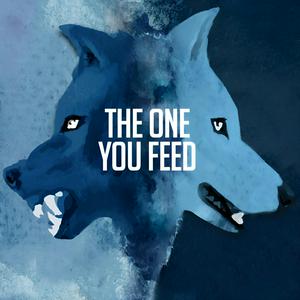
Obtenha o aplicativo gratuito radio.net
- Guardar rádios e podcasts favoritos
- Transmissão via Wi-Fi ou Bluetooth
- Carplay & Android Audo compatìvel
- E ainda mais funções
Obtenha o aplicativo gratuito radio.net
- Guardar rádios e podcasts favoritos
- Transmissão via Wi-Fi ou Bluetooth
- Carplay & Android Audo compatìvel
- E ainda mais funções


The One You Feed
Leia o código,
baixe o aplicativo,
ouça.
baixe o aplicativo,
ouça.




